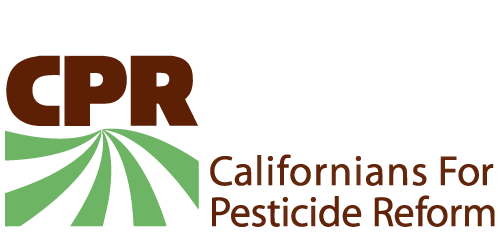Trump Administration stalls court-ordered ban of brain-harming pesticide
See Ventura Chlorpyrifos & OP studies for estimates of the increase in autism and IQ-loss risks from chlorpyrifos use in Ventura County, based upon studies by University of California scientists.
 SACRAMENTO — The U.S. Justice Department has requested a rehearing of a decision by the 9th Circuit Court of Appeals to revoke all tolerances of the neurotoxic pesticide chlorpyrifos within 60 days, putting the proposed federal ban back in limbo for the foreseeable future. The stalling tactic is the latest in an eleven-year struggle over the fate of a pesticide known to cause autism, ADHD and IQ loss. Health advocates in California, including many from the Central Coast region, are now renewing their call to state regulators and Governor Jerry Brown to take immediate steps to end use of Dow Chemical’s blockbuster insecticide in California where almost a million pounds are used annually.
SACRAMENTO — The U.S. Justice Department has requested a rehearing of a decision by the 9th Circuit Court of Appeals to revoke all tolerances of the neurotoxic pesticide chlorpyrifos within 60 days, putting the proposed federal ban back in limbo for the foreseeable future. The stalling tactic is the latest in an eleven-year struggle over the fate of a pesticide known to cause autism, ADHD and IQ loss. Health advocates in California, including many from the Central Coast region, are now renewing their call to state regulators and Governor Jerry Brown to take immediate steps to end use of Dow Chemical’s blockbuster insecticide in California where almost a million pounds are used annually.
Anger at the state’s lack of progress on a chlorpyrifos ban spilled over Thursday at the State Capitol when dozens of advocates and residents of farmworking communities gathered to meet with their legislators and deliver letters to Governor Brown on behalf of more than sixty health, labor and environmental justice organizations. The governor’s office has already received nearly 7,000 letters from concerned residents calling for a ban. A van-full of Ventura County Coalition Advocating for Pesticide Safety (VC CAPS) members made the long trek to join the group, including Lideres Campesinas’ Olga Medina, a featured news conference speaker on the North Capitol steps.
Cristin Romo, a Watsonville schoolteacher who has witnessed the terrible cost paid by rural children, including her own, said “I want the governor to understand this is personal for me. I believe my sons were impacted for life by chlorpyrifos, and no one seems interested in doing anything about it. I don’t understand why our elected officials aren’t protecting us.”
In 2007, the US EPA was ordered by a federal court to make a decision on the safety and continued use of chlorpyrifos, which was banned in 2000 for household use because of its neurotoxic effects. After almost a decade of study, in 2016 the EPA finally proposed an end to all food tolerances for chlorpyrifos. But in one of his first official acts, disgraced former EPA Administrator Scott Pruitt defied agency scientists and refused to finalize the ban.
In the year and a half since, the California Department of Pesticide Regulation has undertaken its own lengthy scientific review, ultimately concluding that young children in California risk permanent neurotoxic effects from exposure to unsafe levels of chlorpyrifos in their food, water and air. DPR’s report recommended listing chlorpyrifos as a Toxic Air Contaminant, while a separate agency last year added chlorpyrifos to the list of toxic chemicals under Proposition 65.
Too little, too late, say advocates who’ve been pushing the state to act boldly, citing the overwhelming body of independent scientific evidence of chlorpyrifos’ harm, and the May decision by the Hawai’i State Legislature to ban the hazardous chemical.
Since DPR released their Toxic Air Contaminant report in June, no new restrictions have been proposed. Instead, DPR has laid out a timetable for further deliberation that extends into 2021. Meanwhile, the half-million children born in California each year face the threat of irreversible harm to their developing brains caused by continued use of chlorpyrifos.
“State scientists and regulators agree that young children are at risk of brain damage from exposure to chlorpyrifos,” said Mark Weller, co-director of the statewide coalition Californians for Pesticide Reform. “Why aren’t they acting to protect our children, given what they know about the hazards of this chemical? The house is on fire, and all they’re offering is years of red tape.”
Californians for Pesticide Reform is a diverse, statewide coalition of over 190 member groups working to strengthen pesticide policies in California to protect public health and the environment. Member groups include public and children’s health advocates, clean air and water groups, health practitioners, environmental justice groups, labor, education, farmers and sustainable agriculture advocates from across the state.
Ventura County Coalition Advocating for Pesticide Safety (VC CAPS) is the Central Coast coalition in the CPR network.
